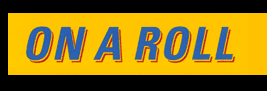I could hardly wait to get back to my office. If this deal went through, everything seemed possible.
But what, you may ask, about my principles? What about never borrowing or taking in investors?
To begin, I didn’t really consider this borrowing or taking in investors in the classic sense. At this point, David and his partner, Peter Sudler, had no equity in the company. I still owned IDT 100 percent free and clear, even if technically they owned some of our equipment. I also didn’t consider this a loan. I was under no obligation to make any fixed repayment schedule. Therefore, if things did not go as well as I hoped, nobody would be in a position to foreclose on me.
True, in order to entice David and Peter into the deal, I had to throw in some other goodies, like the right to do all my future equipment financing on the same terms. I, however, controlled the amount that customers would be charged for our service. Therefore, I controlled the amount the “investors” would actually make. Ten percent seemed to me a pretty fair return, given the fact that this looked like it would become a pretty capital-intensive business.
The investor got one other large benefit in this deal, a huge tax write-off. Because the investors were the ones who were buying the equipment, they were entitled to depreciate it over a few years. Given their high tax bracket, this meant that each dollar they invested would actually cost them only fifty cents.
Although I came to this idea almost by accident, it has helped me to formulate some ideas on raising capital, particularly for relatively small operations that require tangible assets.
I strongly recommend that those trying to finance such a business look for some way to divide the entity up into its component parts and sell off those parts. This will result in your keeping full control of the business. It also means your investors get something tangible that they can keep even if you flop.



